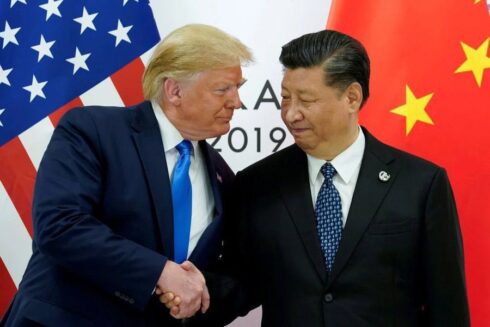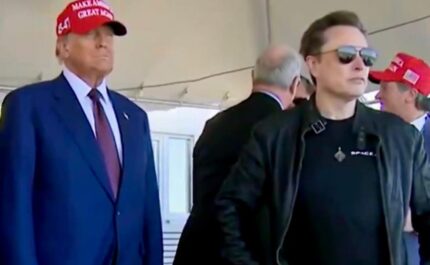The administration of U.S. President Donald Trump has announced sweeping exemptions from its latest round of tariffs, excluding smartphones, computers, and other key electronics from both global and China-specific import taxes. The U.S. Customs and Border Protection disclosed that the goods would not be subject to the 10% global tariff or the 125% levy on Chinese imports, marking the first substantial reprieve in Trump’s aggressive trade policy with China.
Speaking to reporters aboard Air Force One on his way to Miami, Trump promised more clarity on the exemptions by early next week. “We’ll be very specific,” he said. “But we’re taking in a lot of money. As a country we’re taking in a lot of money.” Analysts see the move as a strategic pivot to protect U.S. consumers and tech companies from soaring gadget prices, which had sparked backlash from the electronics sector.
Tech Sector Celebrates “Game-Changer” Decision
The decision was met with swift approval from industry leaders and investors. Tech firms, especially Apple, Microsoft, and Nvidia, breathed a collective sigh of relief. Dan Ives, global head of technology research at Wedbush Securities, described the exemptions as a “dream scenario” for tech investors. “Smartphones, chips being excluded is a game-changer scenario when it comes to China tariffs,” he said in a post on X (formerly Twitter).
The exemptions, retroactively effective from April 5, include a broad range of electronics and components, such as semiconductors, solar cells, and memory cards. These items are vital to the operations of America’s largest tech firms, many of which rely heavily on Chinese manufacturing. Without the exemptions, some analysts warned that U.S. consumers could have faced price hikes of up to 300% on certain devices, particularly Apple’s iPhone.
White House Justifies Exemptions as Strategic Onshoring Push
The White House defended the exemptions as a necessary step to give companies time to relocate their supply chains. “President Trump has made it clear America cannot rely on China to manufacture critical technologies such as semiconductors, chips, smartphones, and laptops,” said White House Press Secretary Karoline Leavitt in a statement. “At the direction of the president Trump, these companies are hustling to onshore their manufacturing in the United States as soon as possible.”
Despite the exemptions, Trump reaffirmed his commitment to high tariffs, calling them essential tools for restoring balance in the global trade system. “I’m very comfortable with the high tariffs on China,” he told reporters Friday. “And I think something positive is going to come out of that.” His administration insists the strategy will attract investment, create jobs, and bring industrial production back to American soil.
Apple and Samsung Rethink Supply Chains Amid Tariff Uncertainty
Apple, which accounted for more than half of smartphone sales in the U.S. last year, stands to benefit most from the exemption. According to Counterpoint Research, about 80% of Apple’s U.S.-bound iPhones are made in China, while the remaining 20% are manufactured in India. The tariff threat had prompted Apple to accelerate production at its Indian facilities, and similar diversification efforts are ongoing in Vietnam and other Southeast Asian nations.
Like Apple, Samsung has also ramped up efforts to diversify its manufacturing base to reduce reliance on China. The rapid policy shifts have heightened the urgency for tech giants to reassess their global supply strategies. Although the exemption offers temporary relief, industry leaders remain wary of future disruptions as Trump continues to use tariffs as leverage in trade negotiations.
Tariff Strategy Remains in Play as Trump Targets China
While Trump announced a 90-day pause on steep tariffs for most countries earlier in the week, China remains an outlier. Its import taxes were raised further to 145%, due to what the White House describes as Beijing’s retaliatory 84% tariffs on American goods. Deputy Chief of Staff for Policy Stephen Miller emphasized that the exempted goods will still face the 20% fentanyl-related tariff on China.
The Trump administration’s decision to scale back some tariffs while escalating others reflects a broader tactical maneuver. Officials say the exemptions are part of a strategy to pressure countries into negotiating more favorable trade terms. Trump has repeatedly stated that his tariffs are meant to correct what he calls “unfairness” in international trade and to encourage the repatriation of manufacturing jobs.
As the dust settles, one thing remains clear: Trump’s trade war is far from over, but for now, tech companies and consumers have caught a much-needed break.














